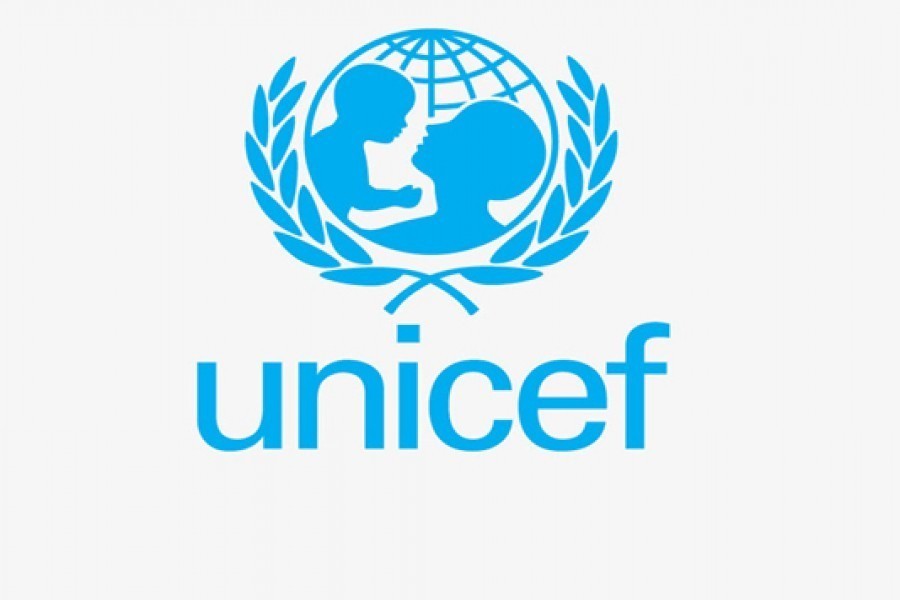The COVID-19 pandemic is unravelling decades of health, education and other advances for children across South Asia, and governments must take urgent action to prevent millions of families from slipping back into poverty, UNICEF said in a new report released on Tuesday.
With the pandemic expanding rapidly across a region that contains a quarter of the world’s population, Lives Upended describes the disastrous immediate and longer-term consequences that the virus and the measures to curb it have had on 600 million children and the services they depend on.
“The side-effects of the pandemic across South Asia, including the lockdown and other measures, have been damaging for children in numerous ways,” said Jean Gough, UNICEF Regional Director for South Asia. “But the longer-term impact of the economic crisis on children will be on a different scale entirely. Without urgent action now, COVID-19 could destroy the hopes and futures of an entire generation.”
According to the report, immunization, nutrition and other vital health services have been severely disrupted, potentially threatening the lives of up to 459,000 children and mothers over the next six months.
UNICEF strongly supports the immunization program in Bangladesh, yet only half of the children received their routine vaccinations in April due to limited access to services during lockdowns and parents’ fear of infection.
UNICEF has delivered new supplies of therapeutic milk to health facilities across the country, however uptake of services for children suffering from severe acute malnutrition still fell by 75 per cent between January and May. According to a study by the Johns Hopkins University Bloomberg School of Public Health published in May, more than 28,000 additional children under five years of age could die in Bangladesh in six months as an indirect result of the pandemic in the worst-case scenario.
“While responding to the COVID-19 epidemic, we must also act to counter the knock-on effects for children urgently and simultaneously. We need to continue life-saving immunizations and nutrition provisions by making sure that both parents and health workers are safe – and feel safe – as they seek and deliver these services. We also need to reopen schools safely as soon as possible. UNICEF is working closely with the Government on these and other critical issues,” said Tomoo Hozumi, UNICEF Representative in Bangladesh.
Food insecurity is growing: A UNICEF survey in Sri Lanka showed that 30 per cent of families have reduced their food consumption.
In Bangladesh, some of the poorest families are unable to afford three meals a day.
With schools closed, more than 430 million children have had to rely on remote learning which have only partially filled the gap; many households – especially in rural areas – have no electricity, let alone internet access. There are concerns that some disadvantaged students may join the nearly 32 million children who were already out of school before COVID-19 struck.
Phone helplines are reporting a surge in calls from children suffering violence and abuse during confinement at home. Some children are struggling with depression, even resulting in attempts at suicide. In Bangladesh, a child helpline intervened in six cases of potential suicide in a single week.
The report also notes that life-saving vaccination activities against measles, pneumonia, diphtheria, polio and other diseases must resume, as should work to help the estimated 7.7 million children who suffer from severe wasting -- more than half the global total. Schools should reopen as soon as possible provided adequate handwashing and other physical distancing precautions are in place.
In recent years, rising levels of prosperity produced significant health, education and other advances for children in South Asia. Improvements in infant and maternal mortality were matched by declines in the number of out-of-school children and in child marriages.
But the economic turmoil triggered by COVID-19 is hitting families across the region hard. Large-scale job losses and wage cuts have coincided with the loss of remittances from overseas workers and from tourism. UNICEF projections show that over the coming six months as many as 120 million more children could be pushed into poverty and food insecurity, joining some 240 million children already classified as poor.
In order to mitigate the impact on poorer families, the report says that governments should immediately direct more resources towards social protection schemes, including emergency universal child benefits and school feeding programmes.
“Putting such measures in place now will help the countries of South Asia transition faster from the humanitarian crisis caused by COVID-19 to a resilient and sustainable development model, with long term benefits for child wellbeing, the economy, and social cohesion,” said Gough.
The report highlights the importance of tackling critical child-related issues exposed by COVID-19 including providing community health workers and other social services staff with personal protective equipment (PPE) to enable them to do their work safely.


